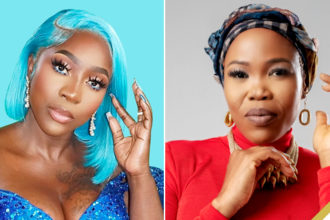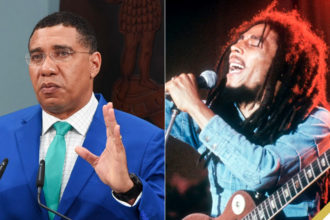In a candid Instagram Live session, renowned reggae songstress Queen Ifrica enlightened her fans with a passionate discourse encompassing various socio-cultural issues pertinent to Jamaica. Her frank revelations touched upon the state of politics, Vybz Kartel’s appeal, Government, and the intricate fabric of the black family within Jamaican society.
Addressing a broad spectrum of topics, Queen Ifrica commenced by clarifying her stance on substance use, unequivocally stating her preference for ‘pure clean’ Marijuana over tobacco or cigarettes. Concurrently, she echoed the resounding call for the Jamaican Government to consider the legalization of Marijuana, advocating for its potential societal benefits.
Amidst the anticipation surrounding her forthcoming album, Queen Ifrica seized the platform to divulge two pivotal occurrences she deems culturally transformative. Firstly, she expressed her conviction that Vybz Kartel, currently with an appeal before the U.K Privy Council, will soon attain freedom. Secondly, she heralded the global release of the Bob Marley: One Love biopic, praising it as a monumental event poised to shape cultural narratives.
Dispelling the conventional label of ‘female artiste,’ Ifrica emphasized her identity as a woman whose artistry serves as a conduit for her deeply held values of family, love, and community solidarity. Paying homage to prominent figures like Rita Marley, Cindy Breakspeare, Dancehall Queen Carlene, and Yendi Phillips, among others, she spotlighted the challenges faced by black renowned women, navigating relationships often under public scrutiny.
Central to Queen Ifrica’s discourse was the urgency to fortify black relationships, lamenting the absence of positive examples for the younger generation. She decried the societal onslaught against ‘highly melanated’ couples and underscored the imperative for black role models to foster a culture of familial integrity.
In light of the new Bob Marley biopic and the persistent fascination with his past relationships, Queen Ifrica championed the notion of agency for women, advocating accountability and empowerment in their pursuit of fulfilling relationships with black men. She cautioned against the prevailing narrative that perpetuates misconceptions about black love and urged for a reclamation of authentic representations in media and society.
Venturing into the realm of governance, Ifrica rebuked the Jamaican Government for its perceived negligence in fostering institutions and programs conducive to the well-being of black families. She issued a clarion call for unity, urging figures like Rita Marley and Cindy Breakspeare to publicly reconcile and stand as beacons of solidarity for Jamaican women.
In a poignant reflection, Queen Ifrica denounced the derogatory stereotypes imposed upon Jamaican women, advocating for a paradigm shift towards reverence and recognition of their contributions and sacrifices.













